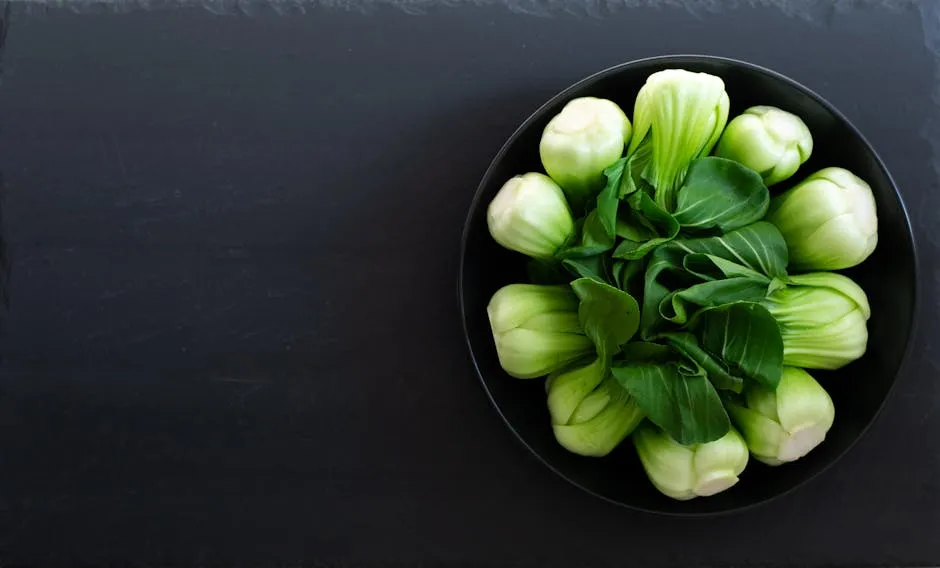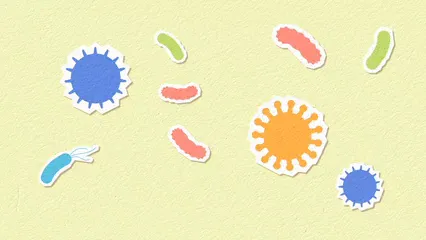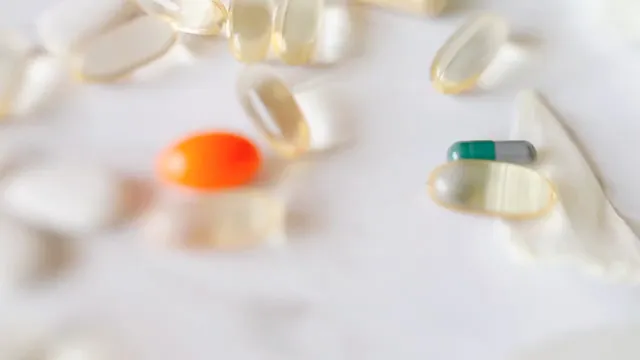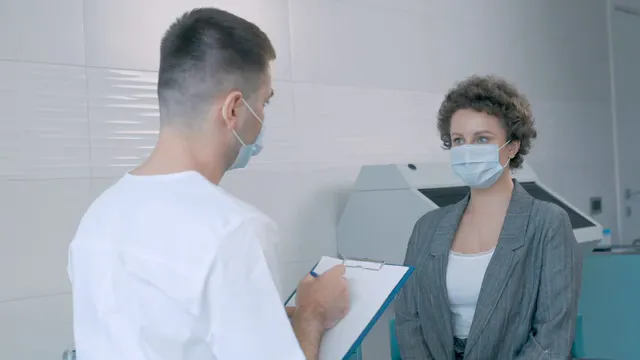
Why Is My Poop Green? Understanding the Color of Your Stool
Introduction
Let’s face it—stool color changes can be as alarming as finding out your favorite ice cream flavor has been discontinued. One moment, you’re enjoying your usual brown, and the next, you glance down to see a vibrant green staring back at you. Panic mode activated, right? However, don’t fret! Green poop is more common than you think and often stems from completely benign causes.
First off, it’s essential to understand that variations in stool color are a part of life. Much like mood rings, your poop can reflect what’s happening inside your body. While green stool may raise eyebrows, it usually indicates harmless dietary influences or temporary digestive changes. So, put down the panic button!
This article aims to peel back the layers of green stool—pun intended! We’ll explore its various causes, what it means for your health, and when it might be time to consult a doctor. By the end, you’ll be well-equipped to tackle any green poop situations with confidence and maybe even a chuckle or two.

Common Causes of Green Stool
Dietary Factors
Dark Green Vegetables
If your stool has taken on a green hue, your diet might be the culprit, particularly those leafy greens. Foods high in chlorophyll, like spinach, kale, and broccoli, can turn your poop into a vibrant shade of green. Yes, that’s right—your healthy eating habits might be the reason for your colorful bathroom surprise!
When you munch on these green powerhouses, your body processes the chlorophyll. If you’ve consumed a hefty portion of these veggies—or perhaps even an extra-large spinach smoothie—your stool can reflect that green goodness. Fun fact: Did you know that the average person should aim for at least 2.5 cups of vegetables each day? So, if you’re hitting that target, your body might be giving you a vibrant nod of appreciation!

And speaking of vibrant greens, why not enhance your smoothies with some Spinach Powder? It’s an easy way to boost your greens intake without the fuss of cooking!
But it’s not just about the greens. Other foods can contribute to this color change as well. Think of green fruits like avocados and honeydew melon. Even blue or purple foods, like blueberries and grape-flavored snacks, can mix in and create that unexpected green surprise in your stool. So, if you’ve been eating a rainbow of foods lately, your digestive tract is likely celebrating your diverse diet—even if it’s leaving a colorful trail behind!
Food Dyes
Who doesn’t love a splash of color in their food? But those vibrant hues might be responsible for your green stool too! Artificial food dyes, often found in candies, ice pops, and flavored drinks, can turn your poop into a colorful masterpiece.
For instance, blue ice pops and grape-flavored sodas can lead to unexpected bathroom revelations. These dyes pass through your digestive system without being absorbed, which can result in greenish stools. So, if you indulged in a childhood favorite or celebrated a festive occasion with colorful treats, it’s worth checking the ingredient list.
Next time you pop that blue treat into your mouth, remember: it might not just be your taste buds enjoying the party! Your digestive system is likely doing a little dance too, and the result could be a green surprise waiting for you in the toilet. So, while food dyes can elevate your snack game, they might also add a twist to your bathroom routine.

Medications and Supplements
Impact of Antibiotics
Now, let’s turn our attention to medications. If you’ve recently completed a course of antibiotics, your poop may not be the only thing feeling a bit off. Antibiotics are known to disrupt the delicate balance of gut bacteria, which can alter the color of your stool.
When antibiotics eliminate those pesky harmful bacteria, they don’t discriminate. They often take out the good bacteria too! This disruption can lead to a rapid transit through your intestines, preventing bile from fully breaking down. The result? You guessed it—green poop.
But don’t panic! If you’ve been feeling fine otherwise, this change is typically harmless. Just keep in mind that if you notice persistent changes or additional symptoms, it might be time to reach out to your healthcare provider. They can help guide you through any concerns you might have about your gut health.
Speaking of gut health, consider adding some Probiotic Supplements to your daily regimen. They can help restore that balance in your gut and keep things running smoothly!

Iron Supplements
Iron supplements can be essential for those battling anemia or low iron levels. However, they come with a side effect that can leave you scratching your head—green poop. Yes, that’s right! Your quest for more iron might just turn your stool into a shade reminiscent of the Hulk.
When you take iron supplements, your body processes the iron, which can result in a greenish hue in your stool. This happens because not all the iron is absorbed during digestion. The unabsorbed iron can alter the color of your poop, making it greener than usual.
But that’s not all! Iron supplements can lead to other gastrointestinal adventures, too. Some people may experience constipation, stomach cramps, or even diarrhea. If you’ve recently started taking iron and noticed your stool going green, you might be dealing with a harmless side effect. However, if you find yourself also battling tummy troubles, it might be worth discussing with your doctor.
Remember, not all green poop is sinister. But keep an eye out! If your symptoms get worse or you experience severe discomfort, it’s time to consult a healthcare professional. They can help determine whether your supplements need adjusting or if there’s something else going on. After all, you want your digestive health to be as green as your smoothie, not your stool!

Gastrointestinal Issues
Infections
Gastrointestinal conditions can throw your body for a loop, sometimes resulting in green poop. One of the usual suspects is irritable bowel syndrome (IBS), a condition that can cause unpredictable bowel movements. People with IBS often experience cramping, bloating, and changes in bowel habits, like diarrhea or constipation. When diarrhea strikes, food can rush through your intestines too quickly, preventing bile from breaking down fully. The result? You guessed it—green stool!
Crohn’s disease is another condition that can lead to green poop. This inflammatory bowel disease can affect any part of the gastrointestinal tract. If you have Crohn’s, you may encounter symptoms like severe abdominal pain, weight loss, and diarrhea. When the intestines become inflamed, bile can move too fast through the system, causing that green tint.
Celiac disease, an autoimmune disorder triggered by gluten, can also be a culprit. It damages the small intestine and leads to malabsorption of nutrients. This malabsorption can cause diarrhea, which may result in green poop. Symptoms of celiac disease include bloating, gas, and fatigue. If you suspect this might be the case, consulting a doctor is key.

While we’re on the topic of digestive health, why not check out a Digestive Health Cookbook? It’s packed with recipes that can help ease your tummy troubles and keep your gut happy!
Monitoring your overall health is crucial when dealing with gastrointestinal issues. If you notice persistent green stool accompanied by any of these symptoms, it’s best to seek medical attention. Your healthcare provider can help you manage your condition and keep your digestive system in check.

When to See a Doctor
Noticing a sudden change in your stool color can be a little unnerving. While green poop often signals benign causes, some symptoms should prompt a visit to your healthcare provider. If you experience persistent green stool lasting more than a few days, it’s time to take action. Ignoring unusual changes can lead to bigger issues down the line.
Severe abdominal pain is another red flag. If your stomach feels like a rollercoaster, and the pain is not letting up, don’t hesitate to seek medical advice. It’s like your body waving a big red flag saying, “Hey, something’s not right here!”
Diarrhea that lasts more than three days is also a cause for concern. Prolonged diarrhea can lead to dehydration, which is no joke. Your body needs fluids to function, and losing too much can leave you feeling weak and drained. So, if you find yourself visiting the bathroom more than usual, keep an eye on how long it lasts.

Additionally, if your green stool is accompanied by fever, nausea, or vomiting, it’s time to speak to a professional. These symptoms suggest that your body is fighting an infection or some other underlying issue. Sure, it might just be a little tummy trouble, but it’s better to err on the side of caution.
Lastly, if you notice blood in your stool, whether it’s bright red or darker shades, do not wait. This can indicate serious conditions, and you should seek medical attention immediately. Your health is important, so don’t let embarrassment keep you from reaching out for help.
In summary, while occasional green poop can be harmless, keeping an eye on accompanying symptoms is crucial. If you notice anything unusual or concerning, don’t hesitate to consult with your doctor. Your body will thank you for it!

FAQs
What does it mean if my poop is green but I’m not eating green foods?
If your stool is green without a diet full of leafy greens, rapid transit through your intestines could be the answer. When food moves too quickly, bile doesn’t have enough time to break down fully. This can lead to greenish stool as the bile remains in its original color. Other factors, like certain medications or infections, can also contribute to this phenomenon. So, don’t panic just yet!
Does green poop mean my liver is failing?
Not at all! Green stool is typically linked to dietary choices or medications rather than liver failure. Your liver plays a vital role in the digestion process, but green poop usually indicates rapid transit or bile issues rather than something as serious as liver problems. If you’re feeling fine otherwise, it’s likely just a colorful side effect of your recent meals or supplements.
Should I be worried about green diarrhea?
If your diarrhea is green and persists, it’s wise to pay attention. While it can stem from harmless causes like diet or medication, if it lasts more than a couple of days or is accompanied by severe symptoms, you should consult a healthcare professional. Better safe than sorry when it comes to your health!

Should I Be Worried About Green Diarrhea?
If you find yourself staring down at green diarrhea, it’s natural to feel a twinge of concern. But before you hit the panic button, consider this: green poop is often harmless. It’s usually linked to what you’ve eaten or medications you’ve taken. However, not all green diarrhea is created equal.
If your green diarrhea sticks around longer than a few days or comes with some unwelcome friends like severe abdominal pain, fever, or blood, it’s time to reach out for help. Prolonged diarrhea can lead to dehydration, which is no joke. So, keep an eye on how you’re feeling overall.
Trust your instincts. If something feels off, don’t hesitate to contact a healthcare professional. They can help determine if your green poop is just a quirky side effect of your latest kale obsession or something that needs more attention.

Conclusion
In conclusion, green poop is typically nothing to worry about. Most of the time, it’s just your body responding to dietary choices, like those leafy greens or colorful treats. Remember, our bodies are quirky, and they love to keep us on our toes—sometimes literally!
Pay attention to your body and its signals. If you notice persistent green stool accompanied by concerning symptoms, don’t hesitate to consult a healthcare professional. Your health is important, and getting to the bottom of any changes is key.
And while you’re at it, consider grabbing an Vegetable Spiralizer to make those greens even more fun to eat! Because let’s be honest, everything tastes better in spirals.
Please let us know what you think about our content by leaving a comment down below!
Thank you for reading till here 🙂
All images from Pexels




